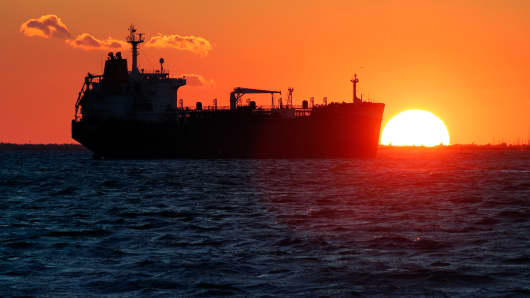The Baltic Dry Index (BDI), an indicator of the shipping rates for bulk commodities, climbed 50 percent over the course of November, but the OPEC deal to reduce oil production and other issues could prove harmful to the industry, according to experts.
Earlier in the week, members of OPEC agreed to reduce oil production in order to reduce oversupply. The decision was great news for oil prices and commodity stocks, but may prove to be a big negative for the shipping tanker industry, according to Rahul Kapoor, director of Drewry Financial Research Services.
“Shipping is a volume game, so higher OPEC production has supported the tanker rates over the past few years,” Kapoor said.
“We don’t have the numbers yet, we don’t know how much has been cut and we’ll have to look at the compliance, but if all were to come true in terms of cuts, this would be negative for the market.”
Following the announcement on Wednesday that an OPEC deal would be achieved, shares in several tanker companies fell. For instance, shares in Belgium-based crude oil shipping company Euronav have fallen around 9 percent since Wednesday morning, and shares in KNOT Offshore partners are down around 2.3 percent.
Despite this, rates in the shipping industry have been improving in recent months.
The BDI hit an all-time low of 290 in February, but has gradually recovered due to growing demand. The index shot up from around 830 at the start of November to around 1,200 points by the start of December.
This movement was driven by the capesize segment of the BDI (these are the largest ships used for transporting coal and other raw materials), explained Kapoor.
“That had a pretty big move, basically the rates went up from around $5,000 (per day to hire a vessel) to all the way up to $15,000 to $18,000. That’s why the move in the Baltic Dry Index looks very amplified,” he told CNBC during a phone interview.
Shipping rates have been recovering for the last six months as China’s economy stabilized, according to Kapoor. Year-to-date, the index is up around 150 percent.
“At the start of the year, we were penciling in a very, very negative demand growth from China, but demand growth has been pretty good from the last few quarters.”
However, problems remain for shipping and rates are still historically low, according to Zvi Schreiber, CEO of freight rate database Freightos.
“Despite the recent uptick in maritime prices, overcapacity continues to impact carriers; 2016 prices were close to 50 percent lower than 2014 ocean prices,” he told CNBC via email.
Market consolidation, such as Moller-Maersk’s announcement this week about buying the German shipping line Hamburg Süd, may not be enough to improve rates.
“Acquisitions by the carriers with large enough war chests to weather the storm is inevitable but fewer ship owners doesn’t mean fewer ships or less capacity. It may bring a brief respite but the underlying overcapacity has not changed and is in fact getting worse,” Schreiber said.
source”cnbc”

